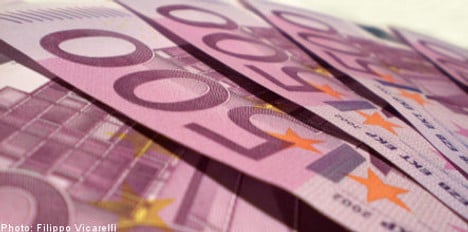Stockholm police say they have received several reports of individuals being handed fake euros as payment for electronics purchased through internet classified adverts
“This is a new phenomenon that we haven’t seen before,” said inspector Stig Sandgren of the Stockholm City police fraud unit to the TT news agency.
Police have already received ten reports from people claiming to have been duped by the scam, and they expect to receive more in the coming weeks.
Victims of the fraud have all placed advertisements on popular buy-sell websites such as Blocket.se offering electronic goods, most often computers.
After making contact, the buyer and seller agree on a price and then decide on a time and place to meet to complete the transaction.
The seller is then given euro bills, usually between 4,000 and 5,000 kronor worth ($570 – $710), as payment.
What the seller of the goods don’t know, however, is that the bills they’ve just been given are in fact counterfeit.
Sandgren fears that more people attempting to sell goods over the internet may get caught in the same trap.
“We’re warning people now to not accept euro bills for these types of transactions with unknown people,” he said.
He suggests that sellers request deals be completed at currency exchange offices where buyers can first exchange their euro bills for Swedish kronor before handing cash over to the seller.
Sandgren also believes it’s possible that several different fraudsters are involved because the method is spreading quickly among other pranksters and criminals.
According to Sandgren, the perpetrators have somehow come into possession of fake euro bills which have made their way onto the market through the purchase of goods over the internet.



 Please whitelist us to continue reading.
Please whitelist us to continue reading.
Member comments